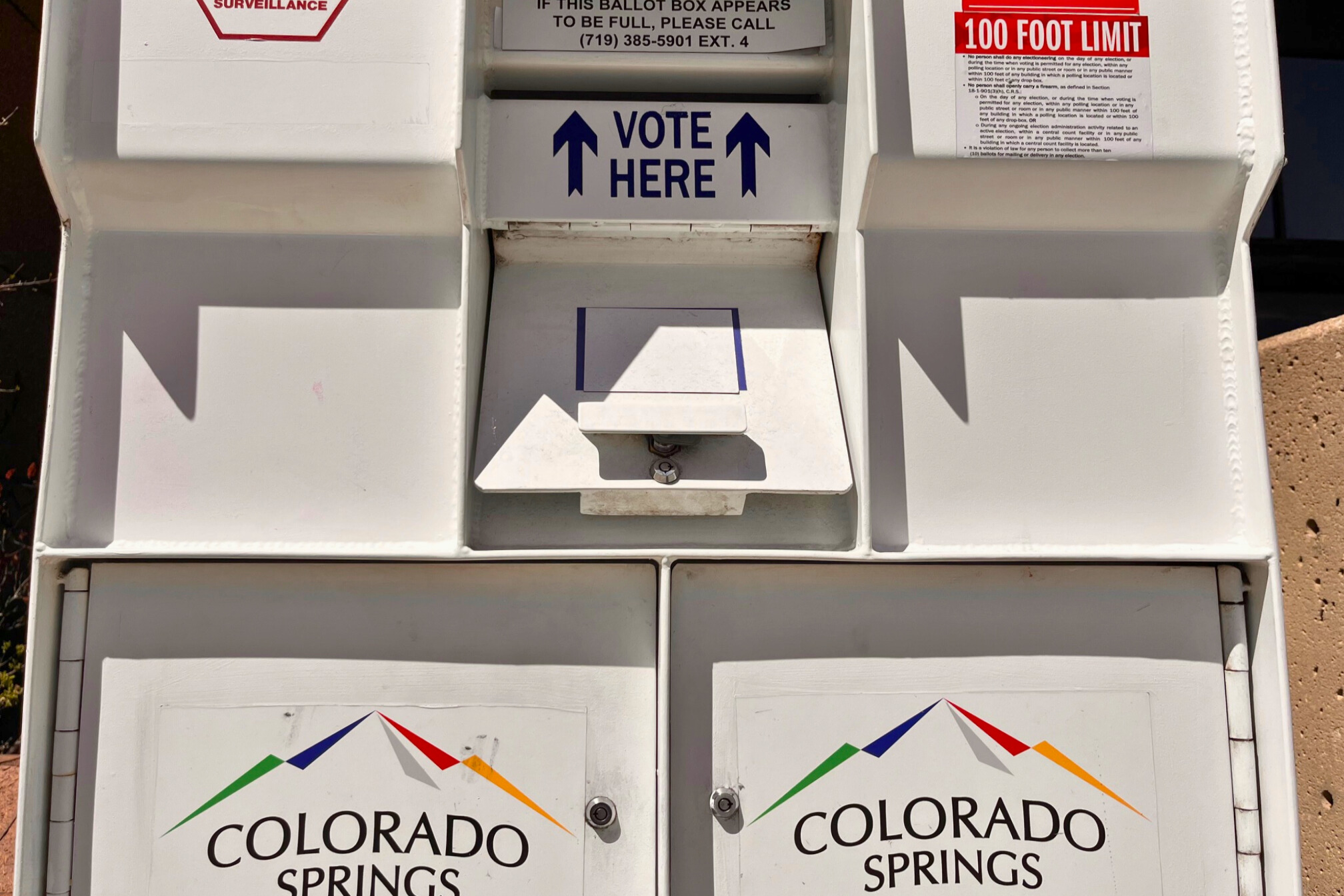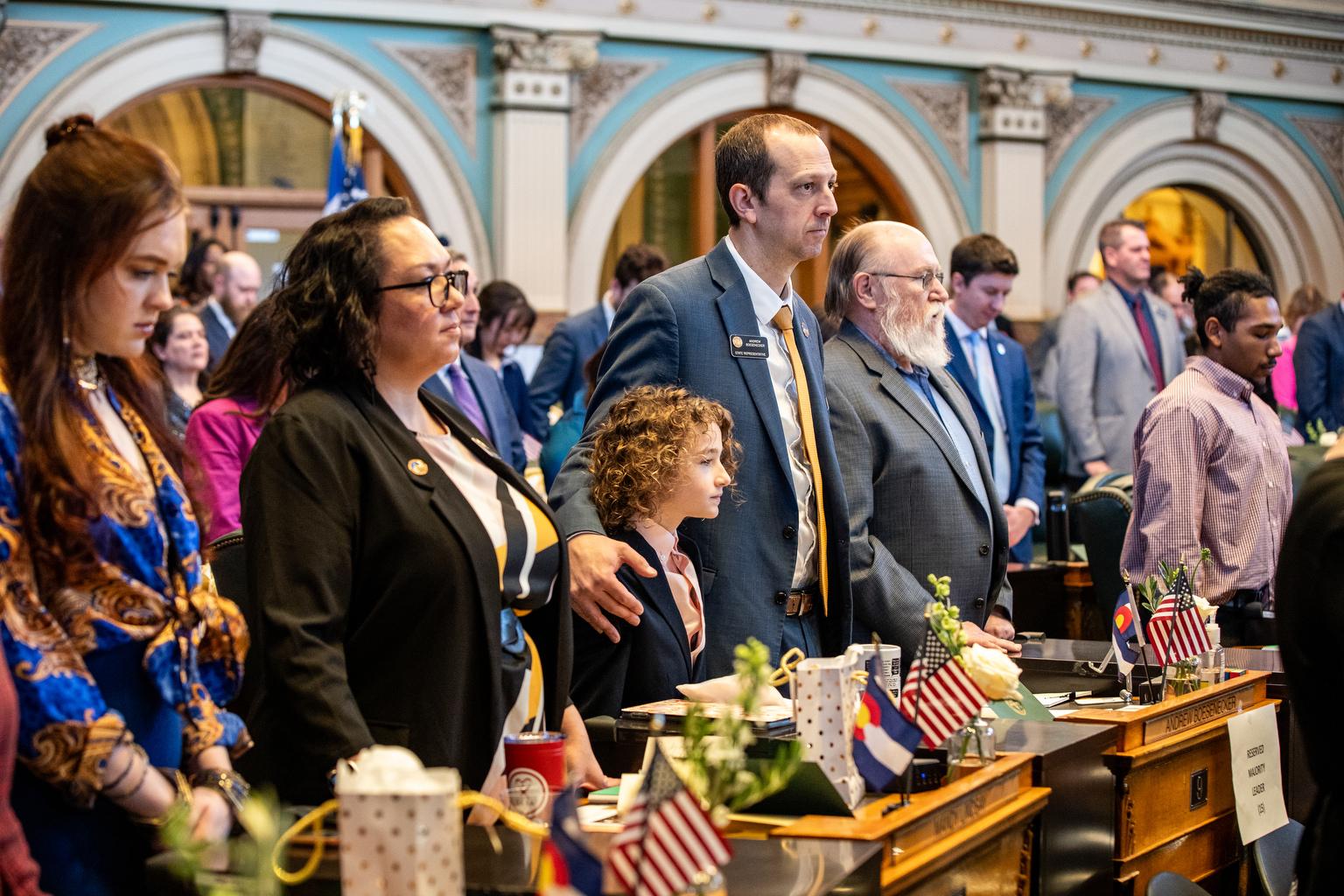
Family, friends and former colleagues joined Colorado’s new and returning lawmakers as they convened at the state capitol on Wednesday for the start of the annual legislative session.
People were in a celebratory mood, but the day still reflected some deep partisan strains, as lawmakers get ready to work on thorny topics with tight budget constraints and under a new Trump administration.
Democrats still hold a wide majority in both chambers but lost their super majority in the House when Republicans picked up three seats. And in a legislative first, six House Republicans voted against the Colorado Secretary of State’s certification of their own election.
In a sign of starker political divisions, the entire GOP House caucus voted for Minority Leader Rose Pugliese to be the next Speaker of the House. Historically Colorado Speakers have been approved by bipartisan acclamation, but in recent sessions, those elections have come to look more like what happens in the U.S. Congress, where each party lines up behind its own leader.
“I’ve never seen this as a personality thing, it's a platform issue,” said Republican Rep. Scott Bottoms of Colorado Springs as he nominated Pugliese for the role.
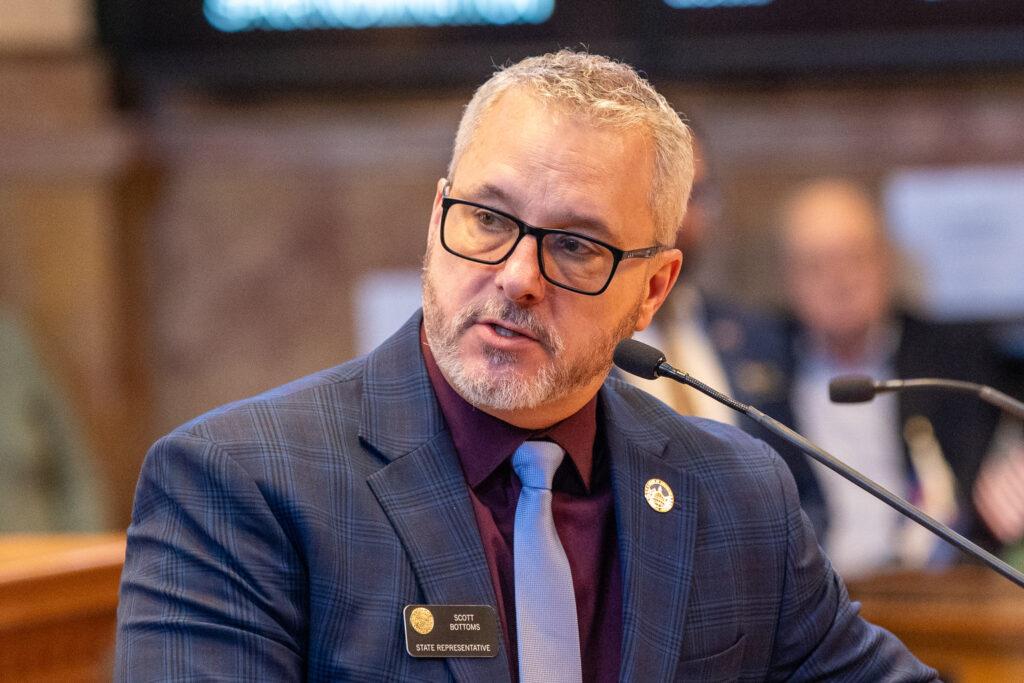
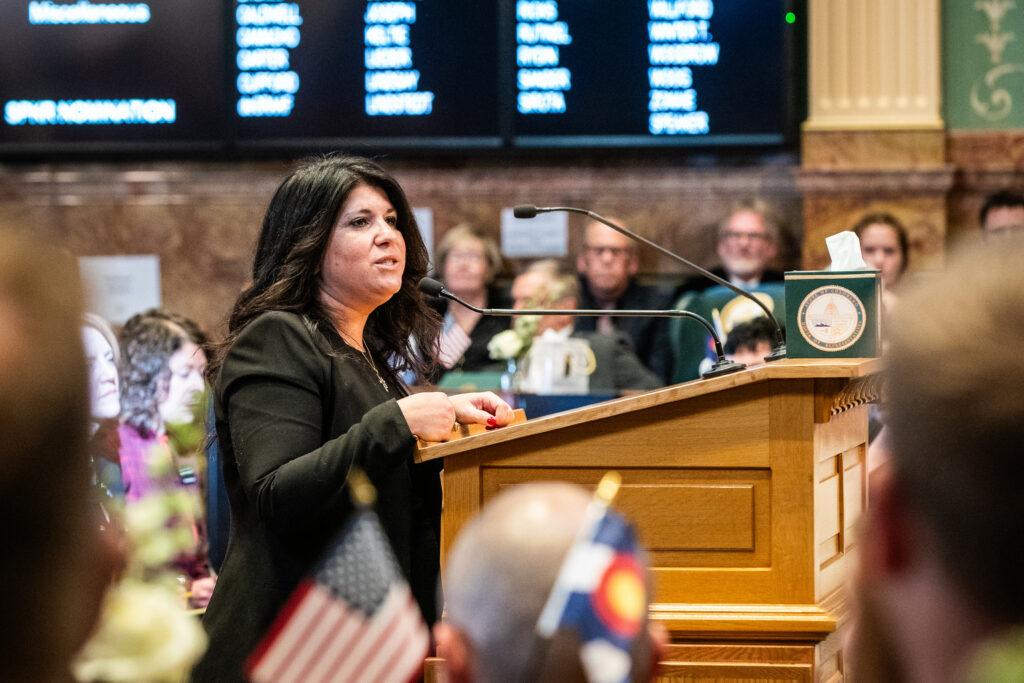
In recent years Republicans have been particularly upset at how Democrats have used House rules to limit floor debate on bills, cutting off their ability to filibuster the policies they find most objectionable.
“There is no space for censorship in this House,” said Pugliese in a brief speech before Democrats officially selected Julie McCluskie to a second term as Speaker.
For her part, McCluskie said the new session is an opportunity for a fresh start.
“When relevant to the topic at hand, chairs will uphold members’ rights to free speech. At times, this will be uncomfortable for lawmakers on both sides of the aisle,” she said.
But, she added, a right to free speech coexists alongside an obligation not to spread hatred. She urged members to listen to each other's stories and be open and honest with one another.

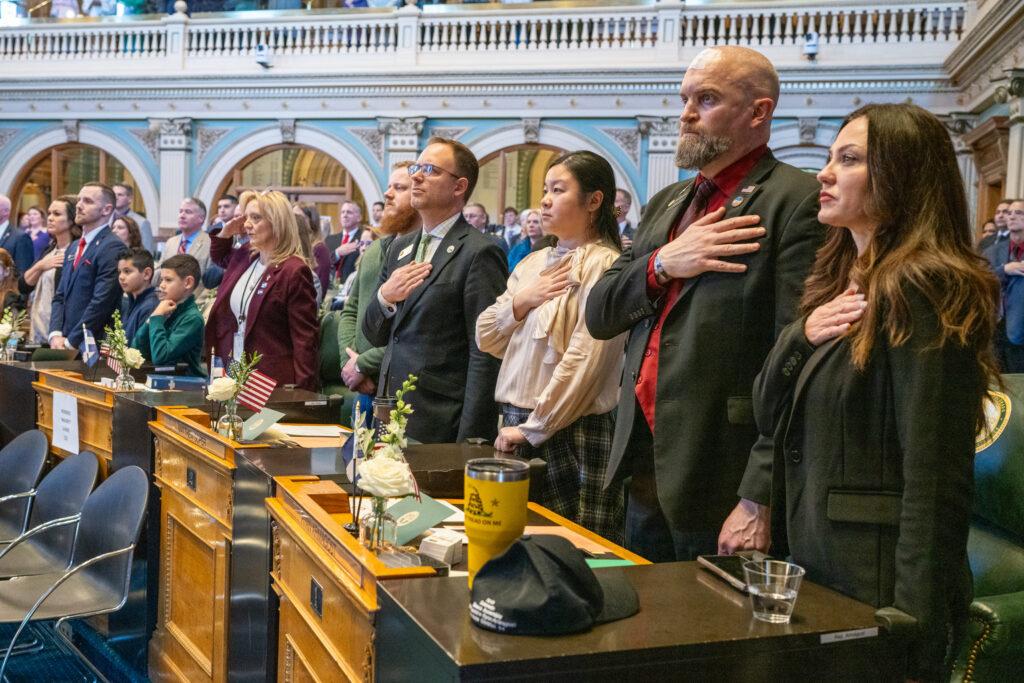
When it comes to her priorities for the session, McCluskie emphasized the need to protect public school funding and money for special education, English language learners, rural schools and at-risk youth, despite a more than $700 million shortfall in the state budget.
“My goal this session is to protect the progress we’ve made,” she said.
In the Senate, Democrats unveil ambitious bills, while Republicans say it’s time for government to do less
Democratic Senate President James Coleman is the only new legislative leader this session. The Denver Democrat urged Senators to be present with their colleagues, and their constituents.
“We can choose to make our work approachable. Each of us can invite and welcome Coloradans into this unique, imperfect – sometimes dull, but never boring – democratic process,” he said.
During his speech, Coleman highlighted several bills that are likely to be controversial. Those include an effort to make it easier for workers to form unions and a proposal to ban the sale of certain makes of guns.
Coleman also returned to a theme he has brought up regularly since the November election — that the legislature’s Democratic leaders are preparing to push back against policies they anticipate from the second Trump administration.

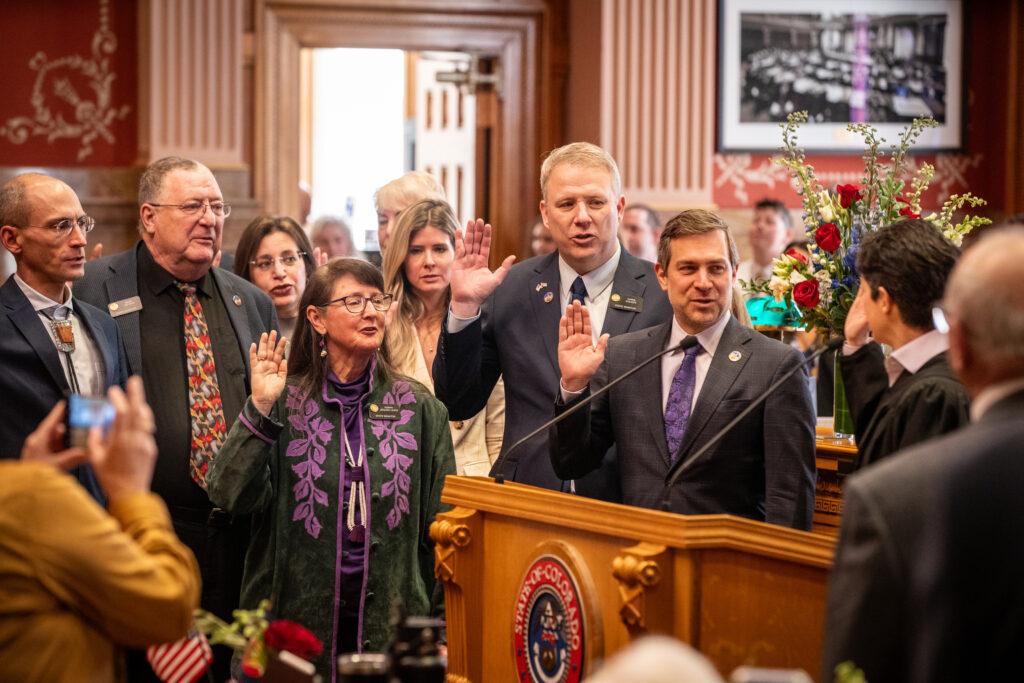
“We know that we will stand up against hate and any efforts to scare us or divide us,” he said. “Our diversity makes us stronger and in Colorado, we can and we will get in the way of threats to our neighbors’ safety.”
The Senate’s first introduced bill — an honor often given to legislation that leaders particularly want to highlight — is a Colorado-specific version of the federal Voting Rights Act.
The Senate’s top Republican, Minority Leader Paul Lundeen, used his remarks to paint a grim picture of Colorado under Democratic leadership.
“In recent years, our state has been burdened by policies that are, at best, heavy-handed, at worst, suffocating,” he said. “They wrap themselves around our economy, around our communities, and around our people like a wet blanket.”
Lundeen said his caucus has identified a broad swath of policies it wants to see rolled back, including fees on deliveries and plastic bags, and warned that nearly half of the state’s business regulations could be considered duplicative.

